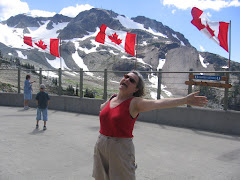
I just got back from doing a really compelling interview.
I am working on my documentary about the family I stayed with in Kashmir, India, in the fall. I have turned the story into a print piece that will be coming out in Mayday Magazine this month. My radio piece (the first one anyway) is just about done and will be broadcast/podcast sometime over the next two weeks.
Those two pieces focus on the lives of the Muslim family I stayed with. I had many, many questions after I left than I had when I first got there, and the more I learn, seems the more complex it gets.
Some of the stories that I work on are disposable .. I write them and forget them. Then there are the stories that stay with you .. it's not so much that I found the story. Rather, the story found me. This is one of them.
A friend of mine casually mentioned that she had a student in her class from Kashmir, and then asked "you went there, didn't you?". She told me more about him .. he's a Hindu from Kashmir, originally from Srinagar, where I had been.
I really wanted to talk to him because there aren't that many Hindus in Kashmir anymore .. a lot of them had left or were driven out when the conflict intensified in 1989. This was a piece to the story I didn't really know a lot about yet. So I got together with Raj this morning. I will post the entire interview on rabble.ca at the same time as I post the documentary.
What was so remarkable about it? What it demonstrated to me was the significance of Kashmir to this young Hindu man .. it's not just holy to Muslims. Even though he had left Kashmir when he was three, Raj referred to Kashmir as a Mecca for Hindus too. And not just Hindus and Muslims. Many people believe that the crucifixion didn't kill Christ ... that his disciples spirited him and Mother Mary away to Kashmir. There have also been genetic tests done showing that Kashmiris have Jewish blood.
Raj says he can remember his family's house, his family's lifestyle and leaving Kashmir. He talked about his aunt who was killed in a bomb blast. He doesn't remember a lot because he was only three. But he is proud to be a Kashmiri even though he is in exile. He would like to go back for a visit but says it isn't safe for a Hindu.
I asked him the question that had been on my mind ever since coming back ... was I brave to go there, naive, or a combination of the two? I asked him if he would recommend that his friends go to Kashmir. He answered, if they are Muslim, yes. Hindu, no. And if you're any other nationality, also no.
But haven't things settled down now, I asked? Yes, they have, he said. Because relations between Pakistan and India are now better? He said he didn't think that was it ... he thinks that the jihadis who were active in Kashmir in past years are now active in other parts of the world. Like Afghanistan.
I tried to get to the heart of his belief about Kashmiri Muslims -- explaining that the fear, the bloodshed, the fighting, was not at all what I experienced living with the Dandoo family. He said "Asian Muslims are different. They come from different traditions." Muslims, Hindus, Christians and Jews all lived in peace for many years. This is a type of Islam that has been imported into Kashmir from elsewhere, he told me. And the Muslims in Kashmir are going through a crisis of identity, not knowing who they are anymore.
I have been looking for a metaphor that symbolizes what I perceived while I was there. Raj gave me the metaphor I was looking for ... this is India's fault line, he said, shifting all the time. Sometimes dramatically, sometimes subtley, but always shifting.
If there is no huge shift, things can continue on as they have. But the violent shift that changes everything could happen at any time.
And nobody knows when.






No comments:
Post a Comment